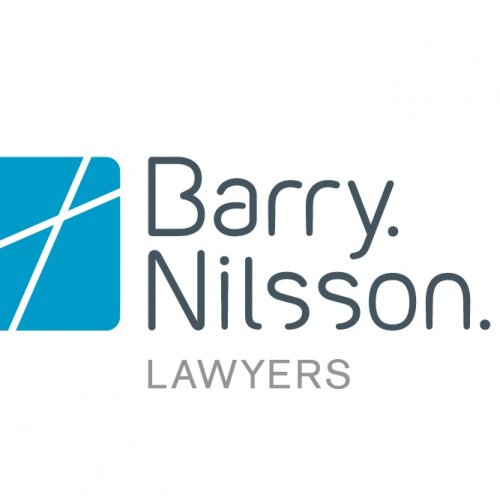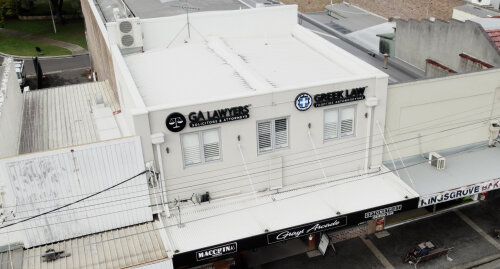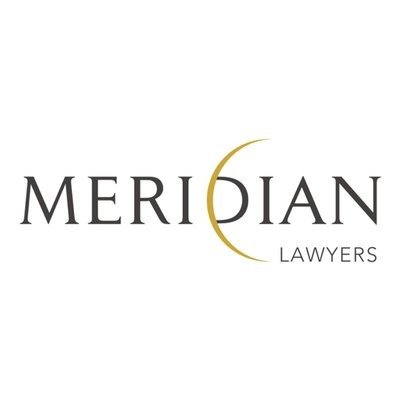Best Insurance Fraud Lawyers in Australia
Share your needs with us, get contacted by law firms.
Free. Takes 2 min.
Or refine your search by selecting a city:
List of the best lawyers in Australia
About Insurance Fraud Law in Australia
Insurance fraud in Australia is a significant crime that impacts not only insurers but also consumers through higher premiums. It involves deceitful acts intended to obtain a benefit or advantage to which an individual is not legally entitled. This can occur in various forms, including exaggerated claims, false information on policy applications, and staged incidents. Australian law treats insurance fraud seriously, with potential consequences ranging from civil penalties to criminal prosecution. Understanding the legal landscape regarding insurance fraud is crucial for anyone involved in the sector, whether as an insurer, policyholder, or legal advisor.
Why You May Need a Lawyer
There are several scenarios where seeking legal advice for insurance fraud is necessary:
- If you are accused of committing insurance fraud, having a lawyer can help you navigate the legal system and ensure your rights are protected.
- If you suspect someone else has committed insurance fraud against you or your business, legal counsel can assist in understanding potential actions you can take.
- Insurance companies suspecting fraud within claims may require legal advice to investigate and address these claims appropriately to avoid potential legal pitfalls.
- If you are a whistleblower who has information about fraudulent activities, a lawyer can guide you on the legal protections available to you.
Local Laws Overview
In Australia, insurance fraud is addressed through various pieces of legislation. The most notable include the Insurance Contracts Act 1984, which governs the relationship between insurers and insured parties, and the Criminal Code, which can be applied to fraudulent actions. Convictions for insurance fraud can result in significant penalties, including fines and imprisonment. State and territory laws also play a role, with each jurisdiction detailing its approach to handling fraudulent claims. Regulators like the Australian Securities and Investments Commission (ASIC) and the Australian Prudential Regulation Authority (APRA) oversee practices within the industry to prevent fraud.
Frequently Asked Questions
What constitutes insurance fraud in Australia?
Insurance fraud includes acts such as making false claims, exaggerating damage, or lying on insurance applications in order to gain monetary benefits.
What are the common forms of insurance fraud?
The most common forms include claim exaggeration, arson for profit, staged accidents, and application fraud.
What are the consequences of committing insurance fraud?
Consequences can range from denied claims and cancellation of policies to severe penalties such as fines and imprisonment upon conviction.
Can an insurance company accuse me of fraud without evidence?
Insurance companies need reasonable grounds and evidence to accuse someone of fraud. If accused, it's critical to seek legal advice promptly.
How can I report suspected insurance fraud?
Suspected insurance fraud can be reported to the Insurance Fraud Bureau of Australia (IFBA) or relevant law enforcement authorities.
What is the role of a lawyer in an insurance fraud case?
A lawyer provides advice on legal rights, helps in case investigations, represents clients in court, and ensures compliance with laws and regulations.
Can I negotiate a settlement in an insurance fraud case?
Depending on the situation, a settlement may be negotiated, but this is best handled with the assistance of legal counsel.
Is there a statute of limitations for insurance fraud cases?
Yes, there are statutes of limitations, which vary by jurisdiction and type of case. It's important to understand the specific limits relevant to your case.
What should I do if I am accused of insurance fraud?
If accused, it's crucial to remain calm, refrain from discussing the matter widely, gather any relevant documentation, and seek legal assistance immediately.
How does an insurance fraud investigation work?
Investigations typically involve scrutinizing claim details, interviewing involved parties, and may require the assistance of forensic experts to establish fraudulent activity.
Additional Resources
For those seeking additional help or information, consider reaching out to the following organizations:
- Insurance Fraud Bureau of Australia (IFBA): Provides a platform to report fraud and seek advice.
- Australian Securities and Investments Commission (ASIC): Oversees corporate conduct, including insurance companies.
- Australian Prudential Regulation Authority (APRA): Regulates the financial services industry.
- Consumer Affairs departments: State-based consumer guidance on dealing with insurance disputes.
Next Steps
If you believe you are implicated in an insurance fraud issue or suspect it has occurred, immediate steps are crucial:
- Gather Evidence: Collect all relevant documentation and communication related to the suspected fraud case.
- Consult a Lawyer: Seek a lawyer experienced in insurance litigation to guide your case strategically.
- Communicate restrictively: Discuss details of the case only with your lawyer to avoid complications.
- Review Policy Documents: Understand your policy terms and conditions concerning your case.
Taking quick, informed action can significantly influence the outcome of an insurance fraud investigation or accusation. Legal professionals can provide a roadmap tailored to your specific situation, ensuring that your interests are protected throughout the process.
Lawzana helps you find the best lawyers and law firms in Australia through a curated and pre-screened list of qualified legal professionals. Our platform offers rankings and detailed profiles of attorneys and law firms, allowing you to compare based on practice areas, including Insurance Fraud, experience, and client feedback.
Each profile includes a description of the firm's areas of practice, client reviews, team members and partners, year of establishment, spoken languages, office locations, contact information, social media presence, and any published articles or resources. Most firms on our platform speak English and are experienced in both local and international legal matters.
Get a quote from top-rated law firms in Australia — quickly, securely, and without unnecessary hassle.
Disclaimer:
The information provided on this page is for general informational purposes only and does not constitute legal advice. While we strive to ensure the accuracy and relevance of the content, legal information may change over time, and interpretations of the law can vary. You should always consult with a qualified legal professional for advice specific to your situation.
We disclaim all liability for actions taken or not taken based on the content of this page. If you believe any information is incorrect or outdated, please contact us, and we will review and update it where appropriate.
Browse insurance fraud law firms by city in Australia
Refine your search by selecting a city.

















